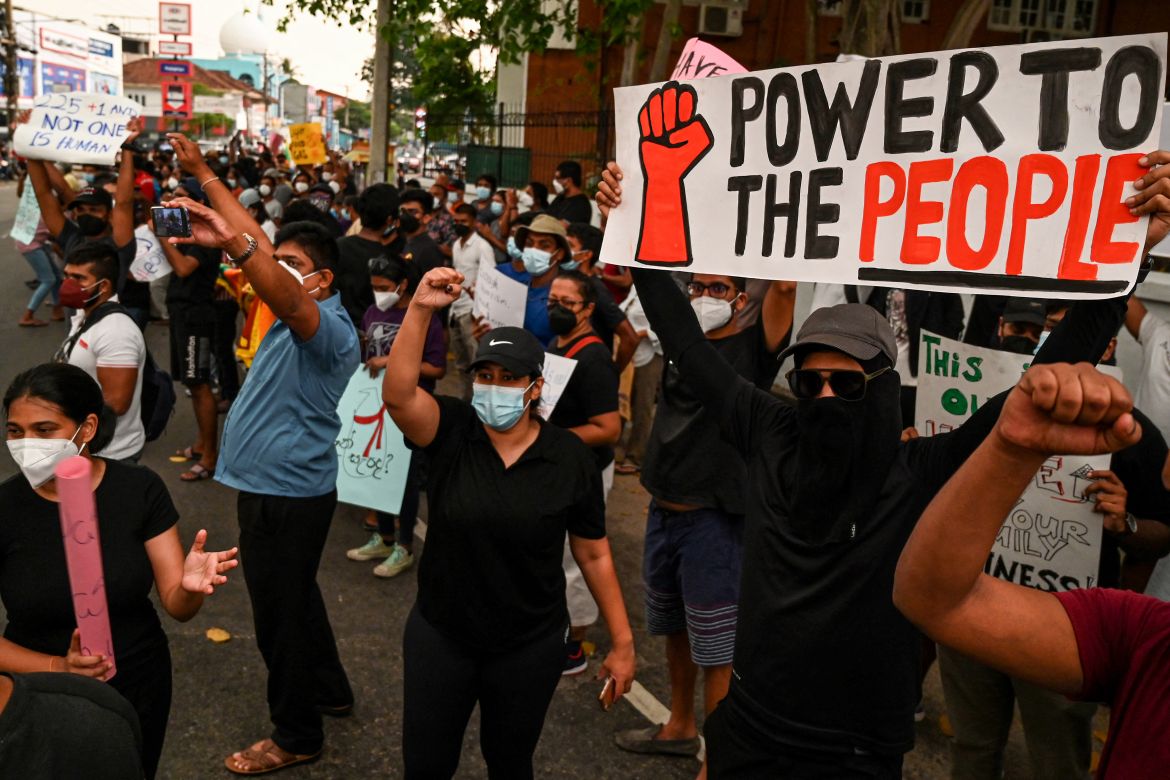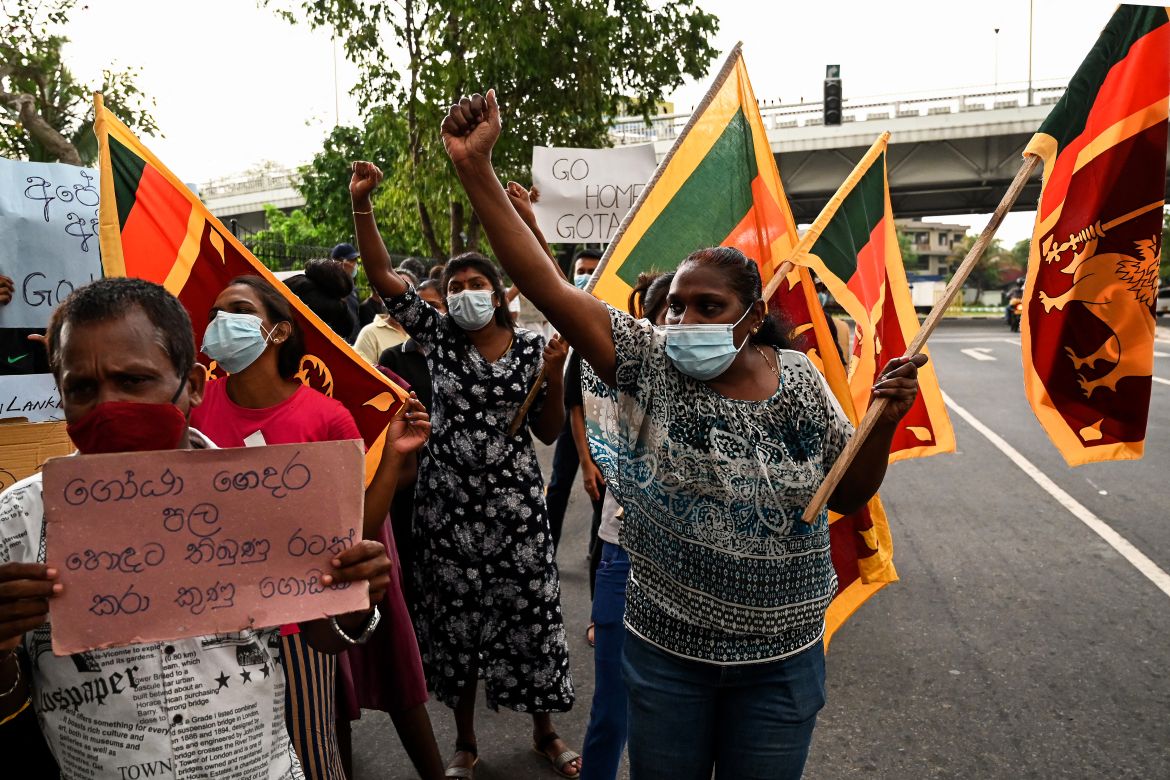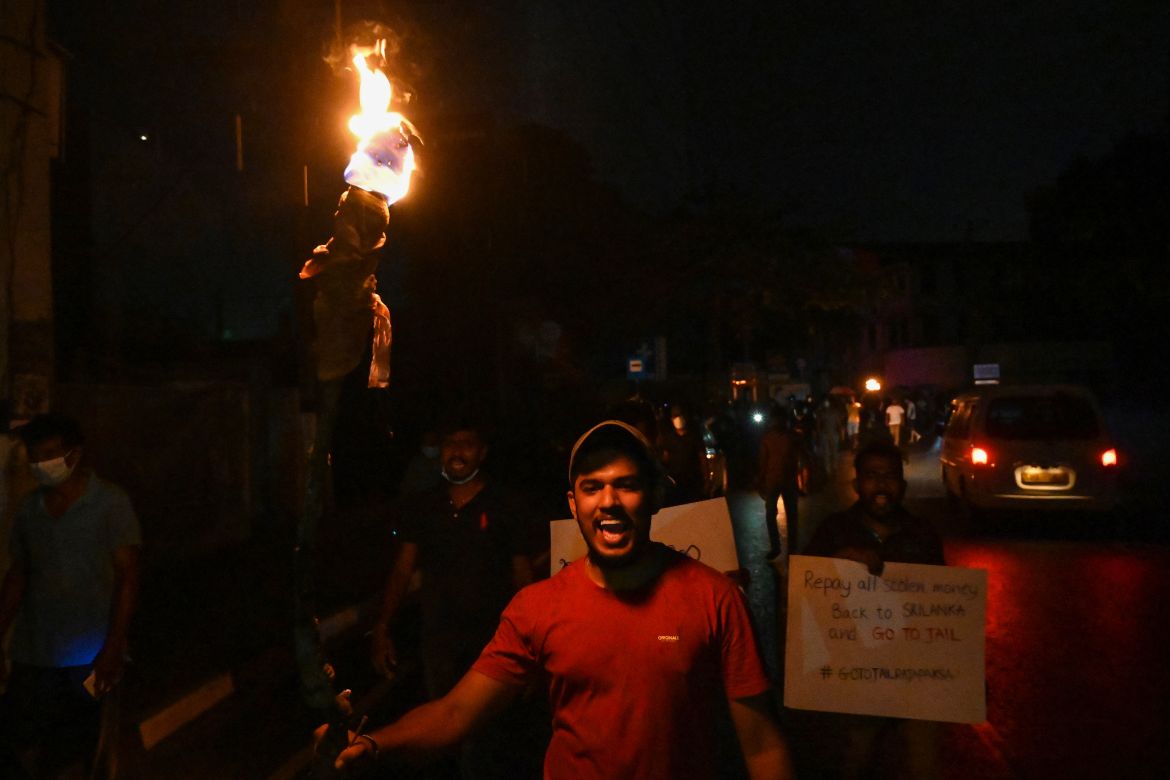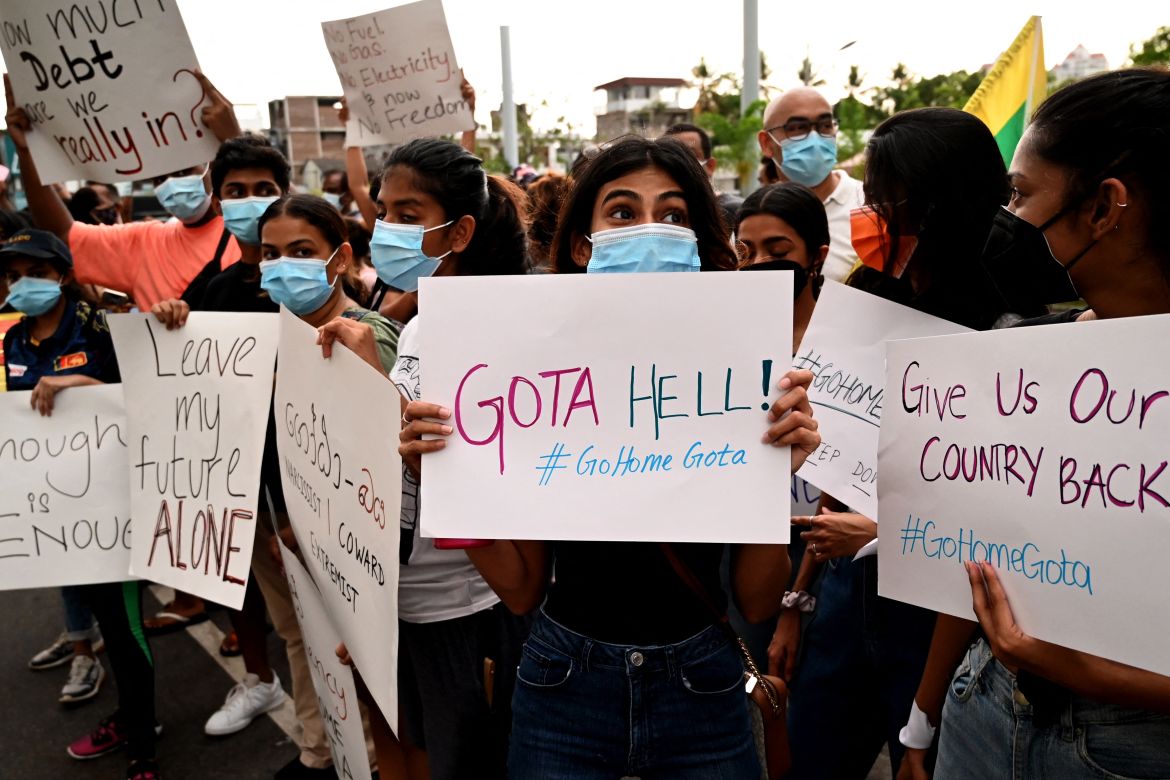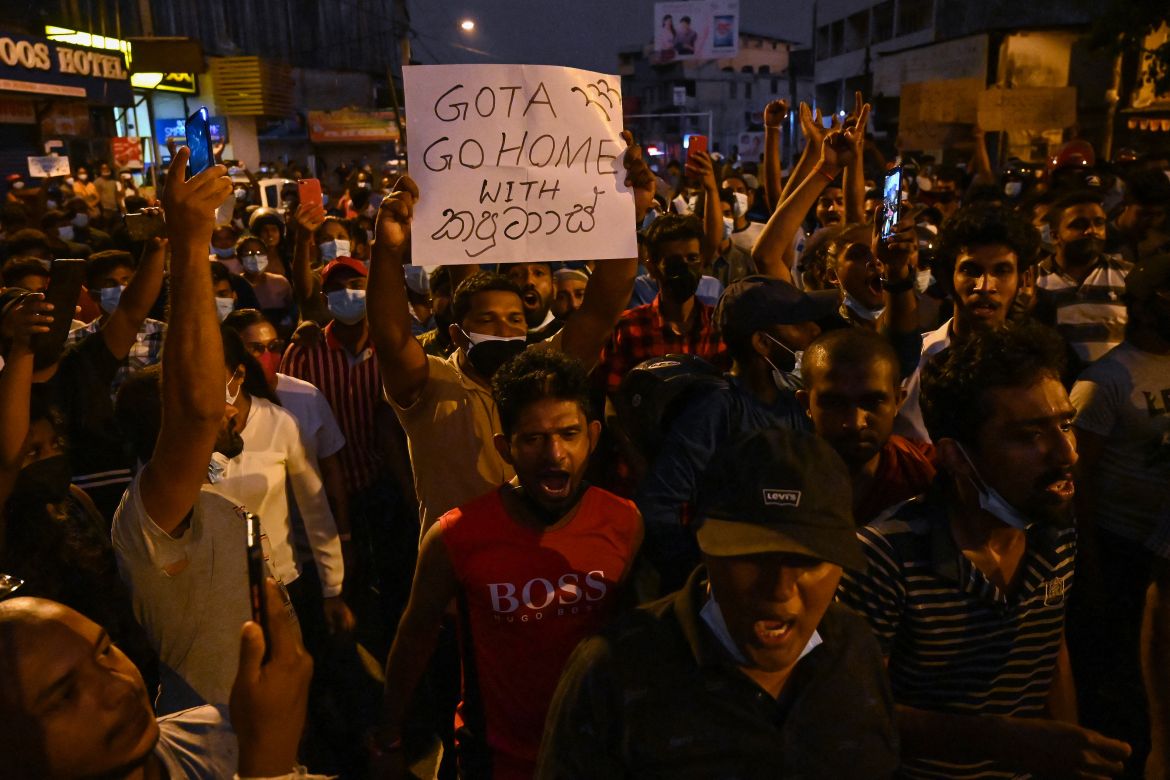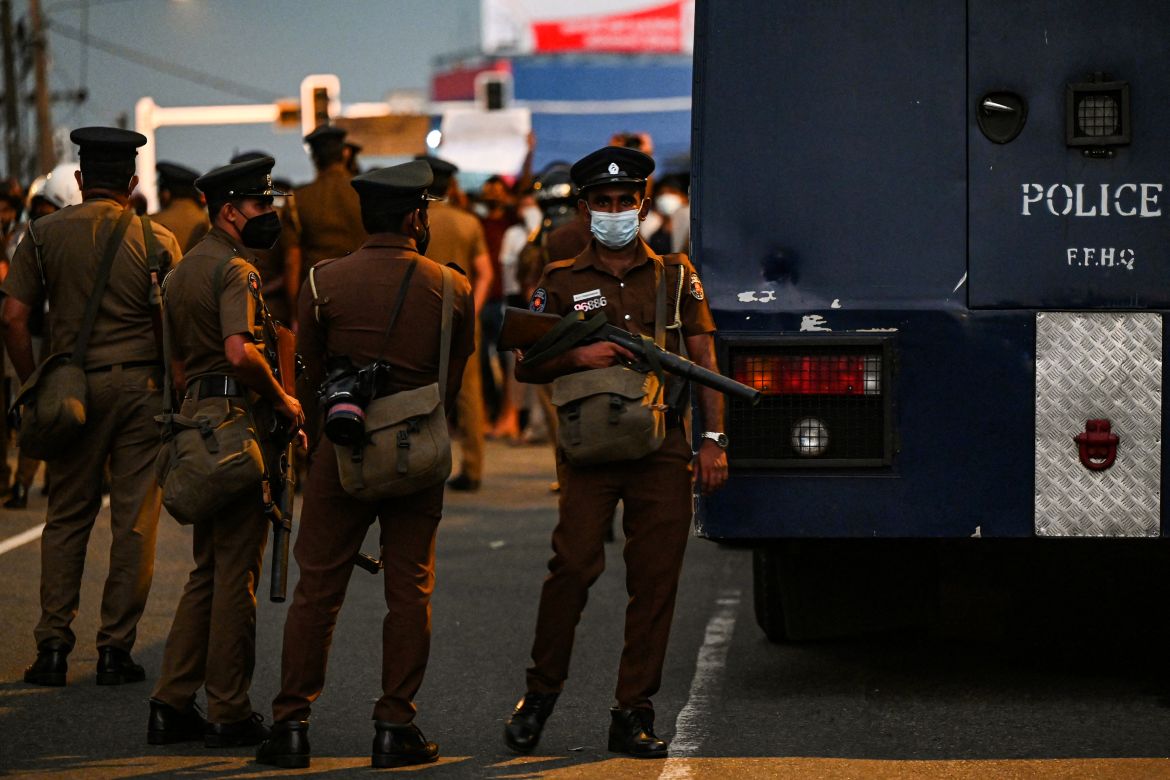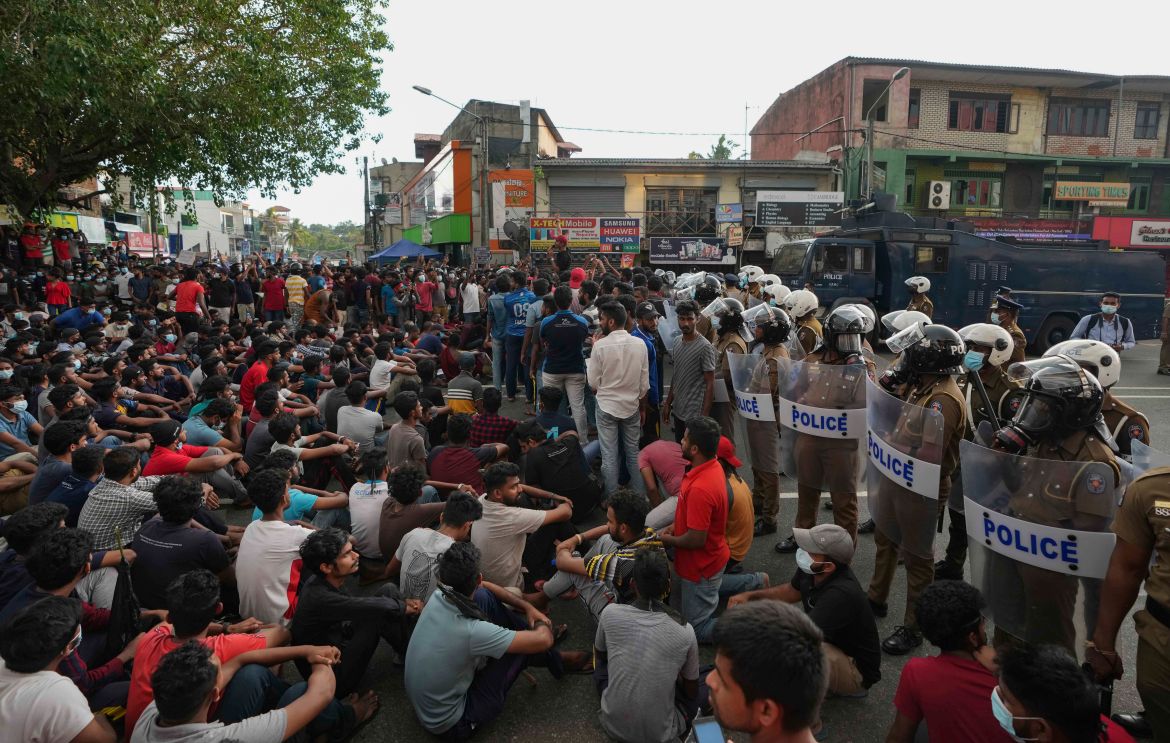In Pictures
Photos: Sri Lanka protesters defy curfew after social media ban
Diesel shortages have sparked outrage across Sri Lanka in recent days, causing protests at empty pumps.
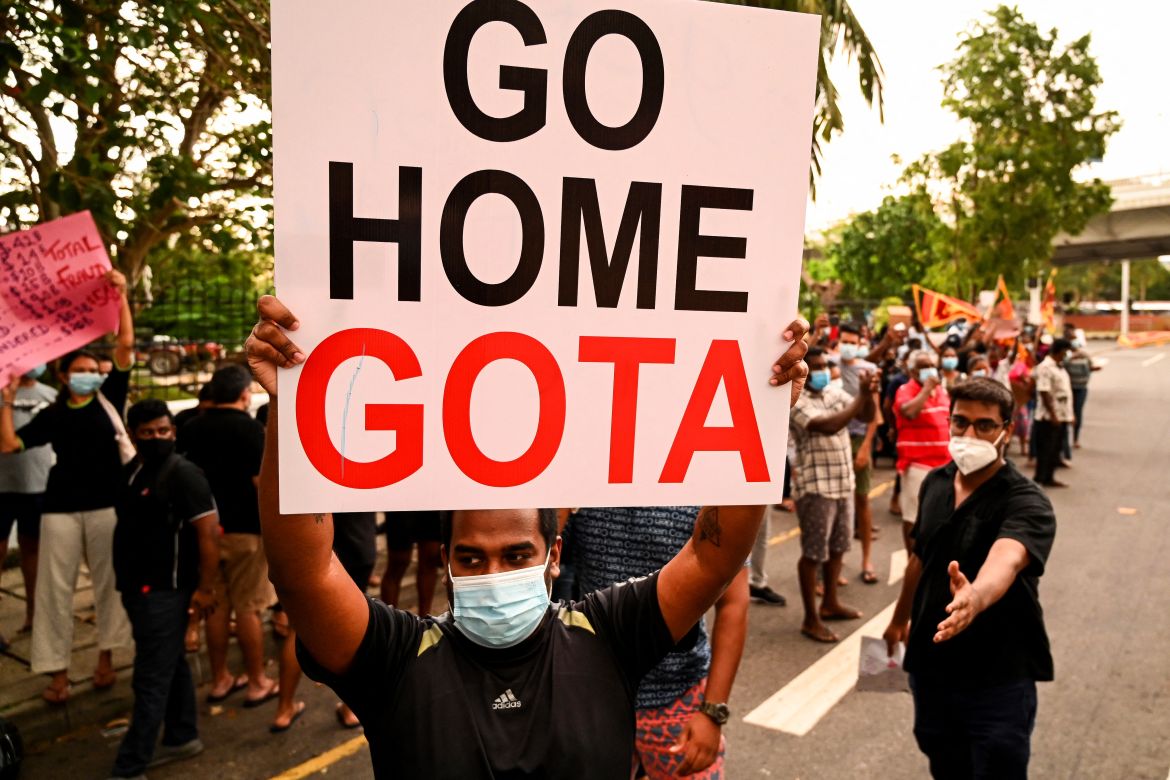
Armed troops in Sri Lanka had a tense confrontation with a crowd protesting a worsening economic crisis on Sunday, April 3 after a social media blackout failed to halt another day of anti-government demonstrations.
The South Asian nation is facing severe shortages of food, fuel and other essentials – along with record inflation and crippling power cuts – in its most painful downturn since independence from Britain in 1948.
President Gotabaya Rajapaksa imposed a state of emergency on Friday, the day after a crowd attempted to storm his home in the capital Colombo, and a nationwide curfew is in effect until Monday morning.
The Samagi Jana Balawegaya (SJB), Sri Lanka’s main opposition alliance, denounced the social media blackout and said it was time for the government to resign.
“President Rajapaksa better realise that the tide has already turned on his autocratic rule,” SJB lawmaker Harsha de Silva told the AFP news agency.
Troops armed with automatic assault rifles moved to stop a protest by opposition legislators and hundreds of their supporters attempting to march to the capital’s Independence Square.
The road was barricaded a few hundred metres from the home of opposition leader Sajith Premadasa and the crowd engaged in a tense stand-off with security forces for nearly two hours before dispersing peacefully.
Eran Wickramaratne, another SJB legislator, condemned the state of emergency declaration and the presence of troops on city streets.
“We can’t allow a military takeover,” he said. “They should know we are still a democracy.”
Internet service providers were ordered to block access to Facebook, WhatsApp, Twitter and several other social media platforms, but the blackout did not deter several small demonstrations elsewhere in Sri Lanka.
Police fired tear gas to disperse university students in the central town of Peradeniya. Protests in other parts of the country ended without incident.
Private media outlets reported that the chief of Sri Lanka’s internet regulator resigned after the ban order went into effect.
The blackout was rescinded later in the day after the country’s Human Rights Commission ruled that the defence ministry had no power to impose censorship.
The streets of Colombo stayed largely empty on Sunday, apart from the opposition protest and long lines of vehicles queuing for fuel.

